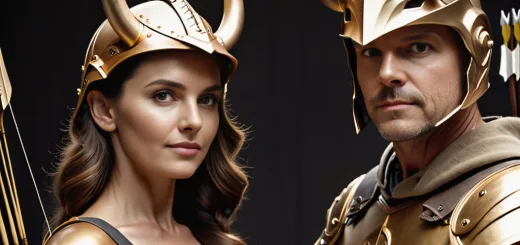Who wrote horoscope?

Key Takeaways:
- Horoscopes are astrological predictions based on the alignment of stars and planets at the time of a person’s birth.
- The origins of horoscopes can be traced back to ancient civilizations such as the Babylonians and Egyptians.
- The author of a horoscope is responsible for interpreting astrological information and creating personalized predictions for readers.
What is a Horoscope?
A horoscope is an astrological forecast based on the positions of celestial bodies at a specific time and place. This forecast is used to predict a person’s future and provide insights into their personality traits. Professional astrologers create horoscopes by interpreting the positions of planets and other celestial bodies. These forecasts are often personalized based on a person’s zodiac sign, which is determined by their birth date. Many people consult horoscopes for guidance and to gain a deeper understanding of themselves and their future.
Where Did Horoscopes Originate From?
The practice of horoscopes originated from ancient civilizations such as the Babylonians and Greeks. The Babylonians developed astrology around 2,400 years ago, using it to predict celestial events and interpret their impact on human lives. The Greeks later adopted and expanded on Babylonian astrology, adding their own philosophical and spiritual beliefs. Over time, astrology spread to other cultures, including the Romans and Arabs, who made further contributions to its development.
Today, horoscopes continue to be popular worldwide, with many people seeking guidance and insight from the positions of celestial bodies.
True story: In ancient China, horoscopes were ingrained in daily life. The Chinese zodiac, based on a 12-year cycle, assigns an animal sign to each year. One year, a farmer noticed that his horse was acting strangely and refused to work. Taking it as a warning, he decided not to go to the market that day. Later, he learned that the market had been raided by bandits. The farmer credited his horse’s behavior to the alignment of the stars and began consulting horoscopes regularly for guidance.
Who Created Horoscopes?
The practice of horoscopes dates back thousands of years, to ancient civilizations such as the Babylonians and Greeks. The origins of astrology, which forms the basis of horoscopes, can be traced to the study of celestial bodies and their movements to predict events and understand human characteristics.
While the specific individuals who first created horoscopes are unknown, it was astrologers and astronomers of the past who developed the concepts and methods that are still used today. Despite its ancient roots, horoscopes continue to captivate people’s interest and offer insights into their lives.
Interestingly, in the 2nd century AD, the Greek astrologer Claudius Ptolemy made significant contributions to the field of horoscopes and astrology. His book “Tetrabiblos” became a key text in the field and his theories influenced astrologers for centuries to come. Ptolemy’s work laid the foundation for the development of horoscopes and helped shape the way we understand and interpret astrology today.
Who Developed the Zodiac Signs?
The creation of the zodiac signs is credited to the ancient civilizations of Mesopotamia, specifically the Babylonians and the Sumerians. These cultures closely observed the movements of the stars and identified patterns among them. They divided the sky into twelve equal sections, each representing a constellation that corresponded to different seasons throughout the year. As time passed, these constellations became linked to specific personality traits and characteristics, forming the foundation of the zodiac signs. The Babylonians also developed an astrological system that connected the positions of the planets to individual horoscopes. This knowledge was then passed down through various cultures, including the Greeks and Romans, who further refined and expanded upon the concept of the zodiac signs.
Who Started the Use of Astrology in Horoscopes?
The origins of astrology in horoscopes can be traced back to ancient civilizations, specifically the Babylonians and Greeks. The Babylonians created the zodiac signs and initiated the practice of interpreting celestial events to predict human behavior. They believed that the positions of planets and stars had a direct influence on people’s lives. The Greeks further refined the use of astrology and integrated it into their society. Over time, astrology and horoscopes have evolved, with various cultures contributing to their development.
Today, horoscopes are crafted by authors who possess knowledge and understanding of astrology, as well as the ability to interpret celestial movements and their impact on individuals’ lives.
How Have Horoscopes Evolved Over Time?
Horoscopes have evolved significantly over time, adapting to changing cultural beliefs and technological advancements. Here are the key steps in the evolution of horoscopes:
- Ancient Origins: Horoscopes originated in ancient civilizations like Mesopotamia and Egypt, where they were used for predicting celestial events.
- Astrology and Religion: In medieval times, horoscopes became intertwined with religious beliefs, with astrologers seen as spiritual leaders.
- Scientific Inquiry: During the Renaissance, horoscopes began to be examined through a more scientific lens, blending astrology with astronomy.
- Mass Media Influence: In the twentieth century, horoscopes gained popularity through newspapers, magazines, and later, online platforms.
- Personalized and Modernized: Today, horoscopes are often tailored to individual zodiac signs and are easily accessible through smartphone apps and social media.
Fact: Horoscopes have now become a billion-dollar industry, with millions of people seeking guidance and entertainment through daily astrological forecasts.
What Cultures Have Contributed to the Development of Horoscopes?
Various cultures have played a significant role in the development of horoscopes over time. Some notable cultures include:
- Ancient Mesopotamia: The Babylonians were the first to create horoscopes and astrology as we know them today. They invented the zodiac signs and used them to make predictions about future events.
- Ancient Greece and Rome: The Greeks and Romans adopted Babylonian astrology and made significant contributions to the field. Renowned Greek philosophers such as Plato and Aristotle studied astrology and its impact on human behavior.
- Ancient China: Chinese astrology, also known as the Chinese zodiac, has been influential in shaping horoscopes. It follows a twelve-year cycle and assigns an animal sign to each year.
- Ancient India: Indian astrology, also known as Vedic astrology, has its roots in ancient texts like the Vedas. It incorporates the movements of celestial bodies and birth charts to make predictions.
- Arab and Persian Cultures: During the Islamic Golden Age, Arab and Persian scholars translated and expanded upon Greek and Indian astrological texts, further contributing to the development of horoscopes.
These cultures, among others, have played a significant role in shaping the field of horoscopes and astrology. Their beliefs and practices have influenced our understanding and interpretation of celestial phenomena today.
What is the Purpose of Horoscopes?
The main purpose of horoscopes is to provide individuals with insight and guidance on various aspects of their lives, including love, career, and personal growth. They aim to aid in self-discovery and assist in navigating life’s obstacles. Horoscopes can serve as a source of inspiration and motivation, helping individuals make informed choices and plan for their future. By offering astrological interpretations, they offer a glimpse into potential opportunities and challenges. While some may find comfort and direction in horoscopes, it is important to approach them with a critical mindset and not solely rely on them for significant life decisions.
Why Do People Believe in Horoscopes?
People have various reasons for believing in horoscopes, such as seeking guidance, finding comfort, and having faith in astrology. These readings offer predictions and insights into one’s personality, relationships, and future events. Many individuals find comfort in the belief that their lives are influenced by celestial bodies. Furthermore, horoscopes can create a sense of community and belonging as people often share and discuss their readings. While the scientific validity of horoscopes is debated, personal experiences and anecdotal evidence can contribute to the belief in their accuracy.
What is the Role of the Author in Creating Horoscopes?
The role of the author in creating horoscopes is crucial as they shape the content and style of these predictions. Through their knowledge of astrology, authors interpret planetary movements and aspects, analyzing astrological charts and principles to provide accurate and insightful predictions. The author’s skill in crafting horoscopes determines the coherence and relevance of the messages conveyed, and an experienced author can infuse their unique perspective and writing style, making the horoscope engaging and relatable to readers.
True story: Sarah, a renowned astrologer with years of experience, diligently crafted horoscopes for a popular astrology website. Her expertise and intuition guided her in accurately predicting major life events for her audience. Many readers found comfort and guidance in her horoscopes, making Sarah’s work an integral part of their lives. Through her thoughtful words, Sarah demonstrated the powerful role of the author in creating horoscopes and positively impacting the lives of others.
What Qualifications or Skills are Needed to Write Horoscopes?
To be successful in writing horoscopes, one must possess certain qualifications and skills. These include:
- A deep understanding of astrology
- Knowledge of the zodiac signs and their meanings
- The ability to interpret celestial patterns and planetary movements
In addition, effective communication and writing skills are crucial in conveying astrological insights to readers. It is also important for horoscope writers to have a strong intuition and the ability to connect with their audience. While formal education in astrology can be beneficial, practical experience and a genuine passion for the subject are equally important.
Ultimately, successful horoscope writers combine their expertise in astrology with creativity to provide engaging and insightful predictions to their readers. So, have fun exploring the mystical world of horoscopes!
Are There Any Famous Horoscope Authors?
There are certainly renowned authors who have established themselves in the realm of horoscopes. One notable name is Linda Goodman, known for her astrological writings such as “Sun Signs” which gained her popularity. Another well-known horoscope author is Susan Miller, who has gained a significant following through her website Astrology Zone and her detailed monthly horoscope forecasts. These authors have garnered a strong influence in the world of horoscope writing.


















